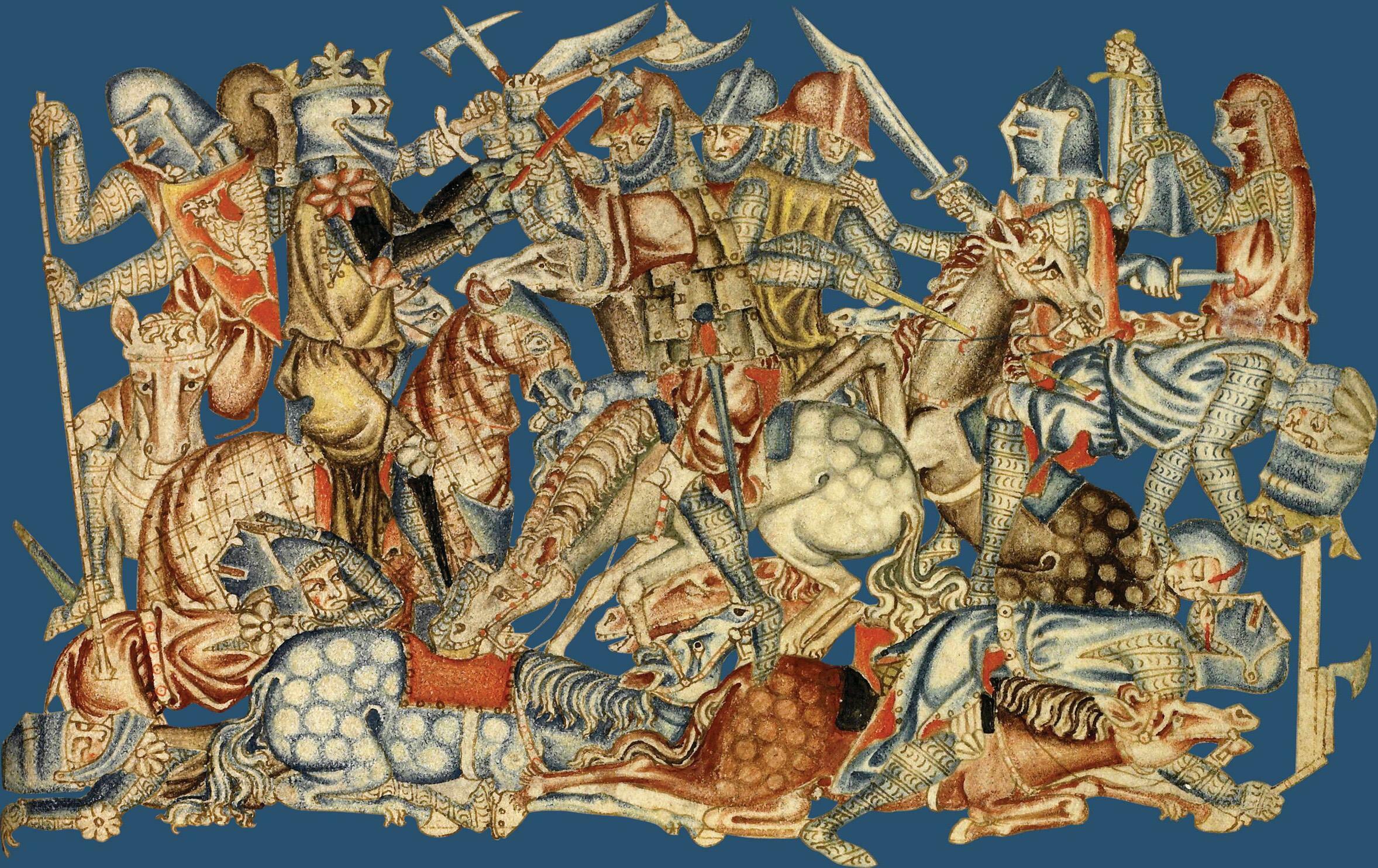
In June 1314 a great army rumbled forwards, parallel to the river Forth, following the old Roman road that led north across the war-ravaged Anglo-Scottish border. The king of England, Edward II, rode at the head of an army of around 18,000 infantry and 2,000 heavy cavalry horses. A baggage train allegedly 20 miles long groaned under the weight of arms, plate, food and wine and the administrative paraphernalia associated with the management of the crown, including England's Great Seal. The army was marching to relieve Stirling Castle, an English-held bastion 40 miles north-west of Edinburgh that was under siege by Edward Bruce, brother of the self-proclaimed king of the Scots, Robert.
Edward II was a king in a hurry. Should the Scots capture Stirling, he would lose access to the north of Scotland and with it, his grip on the land his father, Edward I, the self-styled 'Hammer of the Scots', had conquered at the outbreak of war in 1296. And so he had mustered an army in Berwickon-Tweed, the English administrative centre in the north, and marched in haste. The knight Sir Thomas Gray rode towards Stirling that day and 40 years later his son (also Sir Thomas Gray) would record his father's account of the battle in his book Scalacronica.
As the English marched north, Robert the Bruce prepared for combat. He allocated commanding roles to loyal soldiers such as James Douglas, otherwise known as Black Douglas (possibly for his black hair but most likely for the fact that he'd raided, torched and pillaged his way across the northern frontier). Together they trained 5,000-6,000 infantry to use spears as offensive weapons in 'schiltrons' - hedgehog formations of razor-sharp steel that would push forward into attack against oncoming cavalry. These became the greatest weapon of the Wars of Scottish Independence, a fighting machine that could destroy a cavalry army.
This story is from the September 2023 edition of BBC History UK.
Start your 7-day Magzter GOLD free trial to access thousands of curated premium stories, and 8,500+ magazines and newspapers.
Already a subscriber ? Sign In
This story is from the September 2023 edition of BBC History UK.
Start your 7-day Magzter GOLD free trial to access thousands of curated premium stories, and 8,500+ magazines and newspapers.
Already a subscriber? Sign In

The Aztecs at war
RHIANNON DAVIES discovers why war was so important to the Mesoamerican people - and why they believed a badly cooked meal could prevent a soldier from shooting straight

Towering achievement
NATHEN AMIN explores a 13th-century stronghold that was built to subdue independent-minded Welsh people, yet has since become a symbol of courage in the face of overwhelming odds

Eighteenth-century mushroom ketchup
ELEANOR BARNETT shares her instructions for making a flavourful sauce with roots in south-east Asia

Goodbye to the gilded age
JOHN JACOB WOOLF is won over by an exploration of the Edwardian era, which looks beyond the golden-era cliché to find a nation beset by a sense of unease

The power of the few
Subhadra Das's first book catches two particular waves in current publishing.
The 'badass' icon
One of the problems with biography, if an author is not careful, is that it can quickly become hagiography.

Ghosts of Germany's past
KATJA HOYER is impressed by a study of a nation's attempts to grapple with the crimes it perpetrated during the Second World War

A window onto England's soul
SARAH FOOT has high praise for a book that traces the evolution of English Christianity over the course of 1400 years, through the lives of its greatest thinkers

"There was a general perception that Queen Victoria's mourning was neither normal nor acceptable”
JUDITH FLANDERS talks to Rebecca Franks about her new book, which delves into the customs surrounding dying, death and mourning in Victorian Britain

"Indigenous children were forcibly separated from their families"
HIDDEN HISTORIES... KAVITA PURI on the legacy of Canada's residential schools